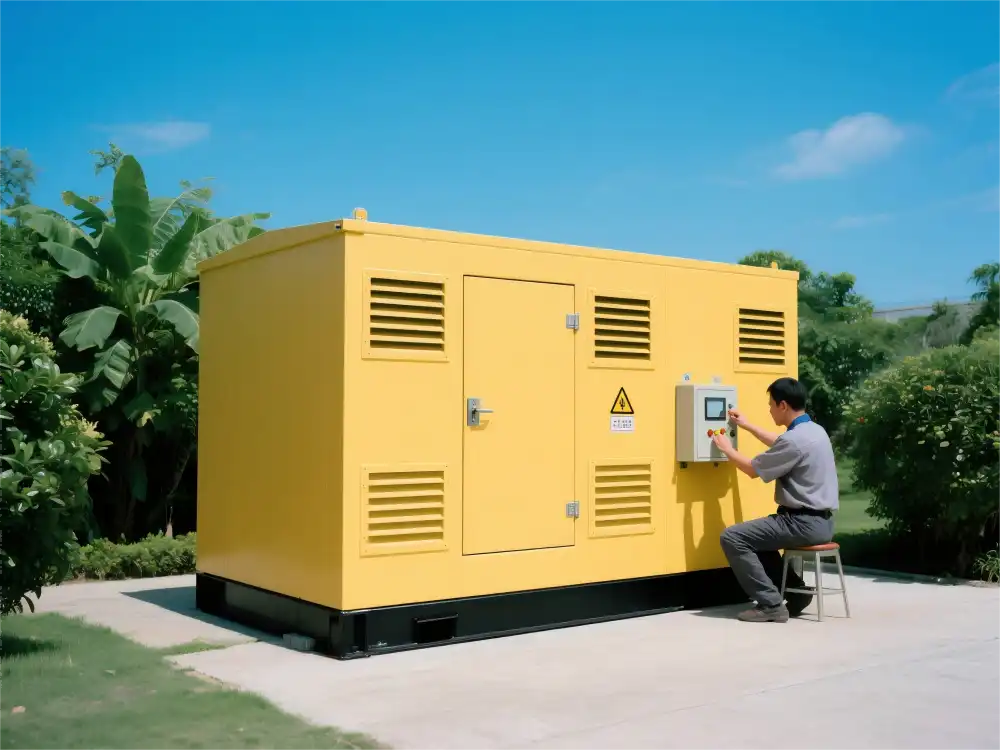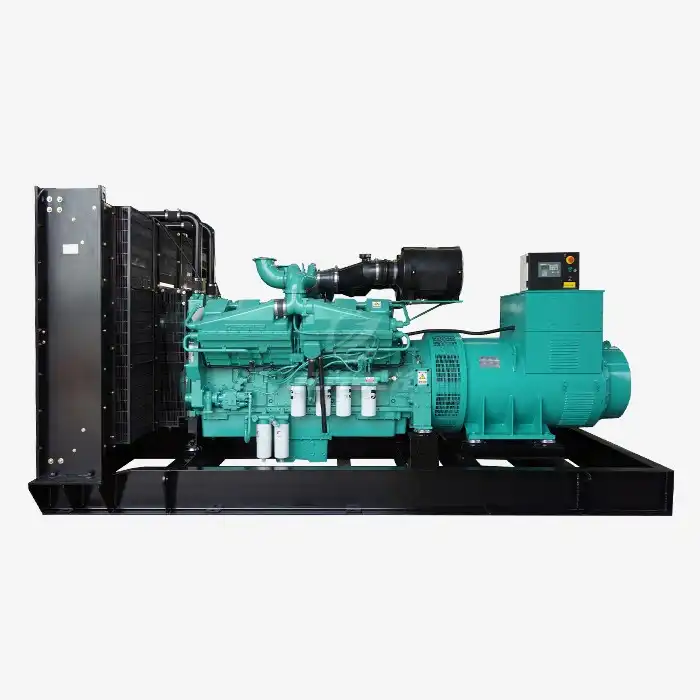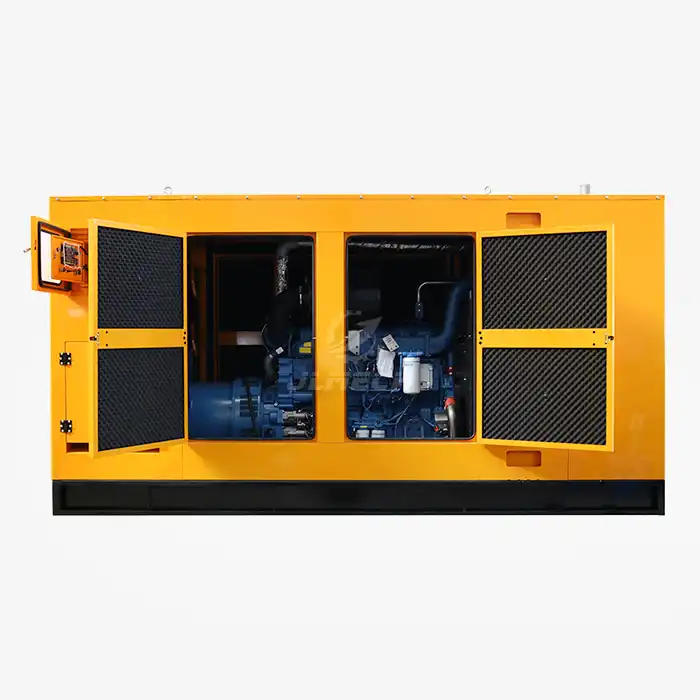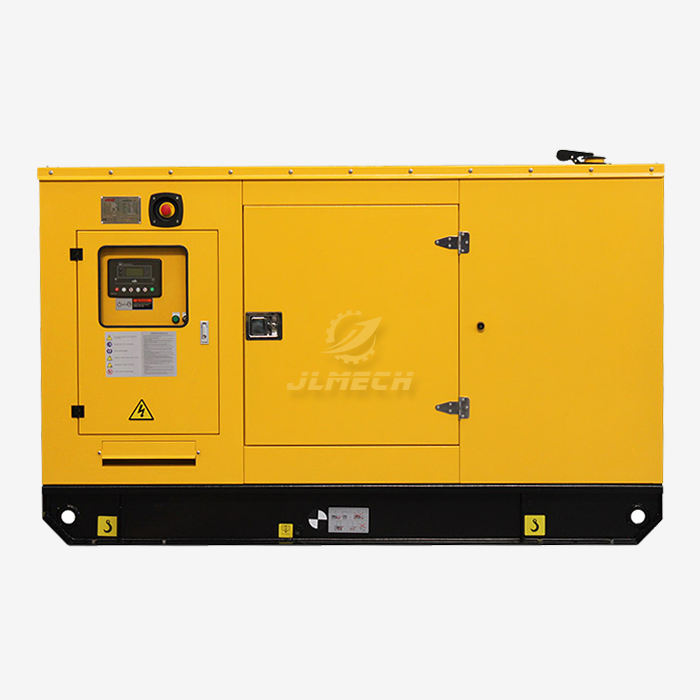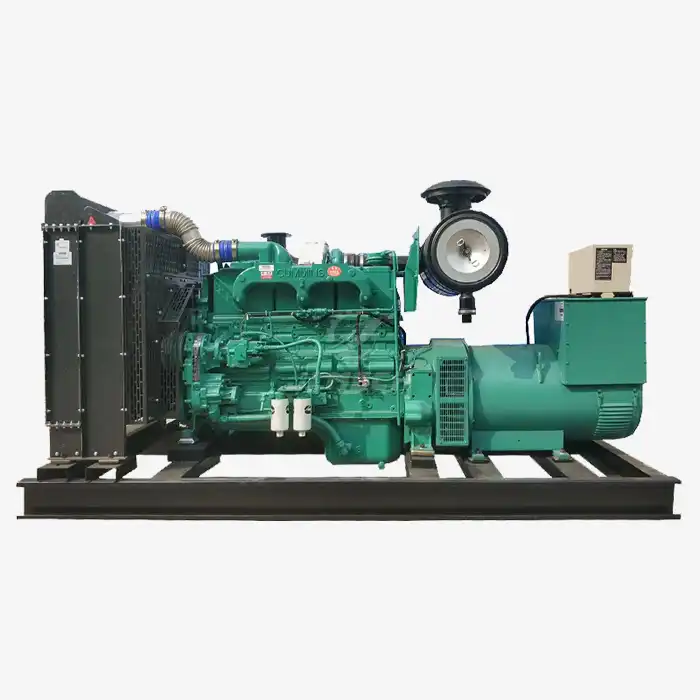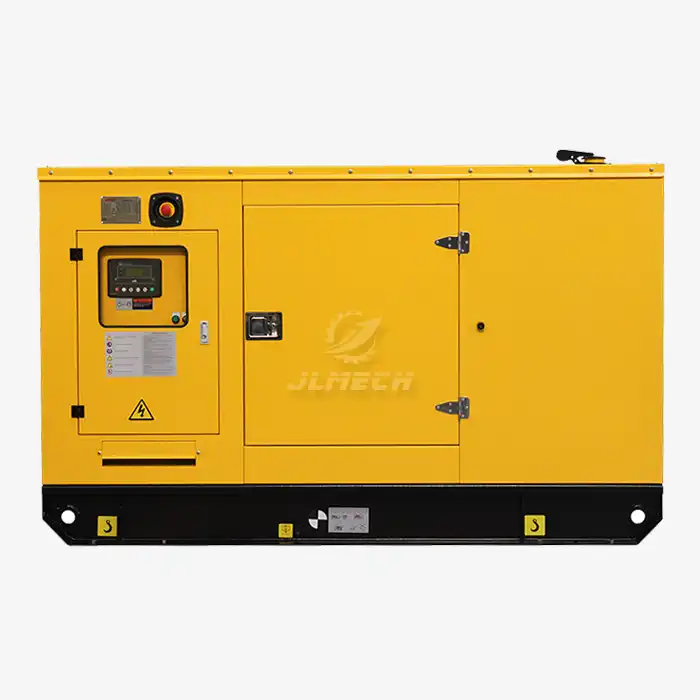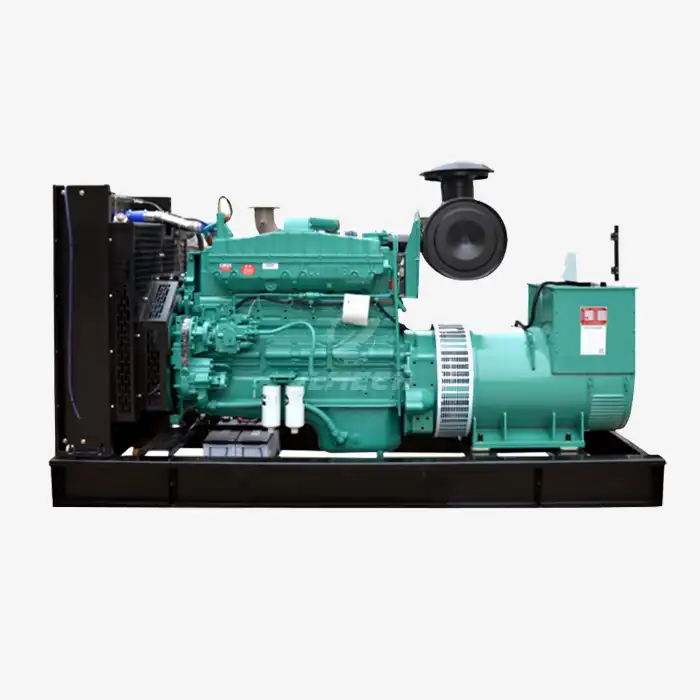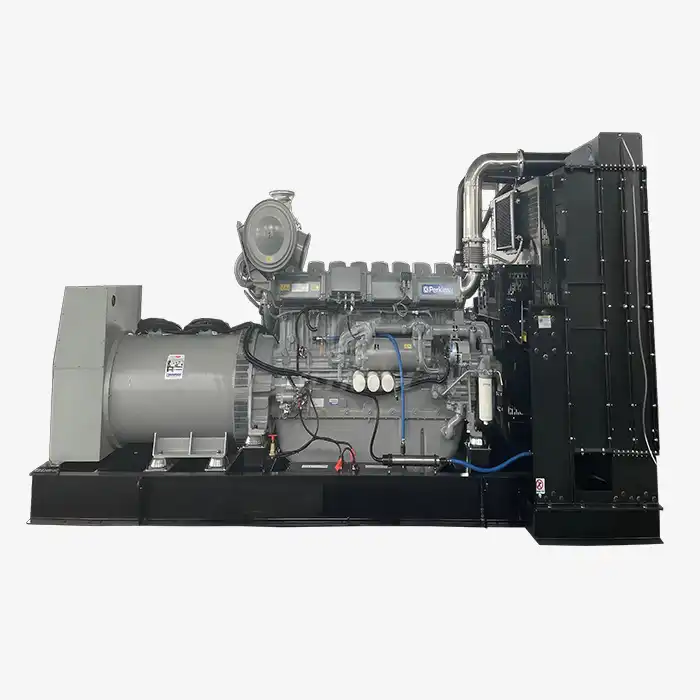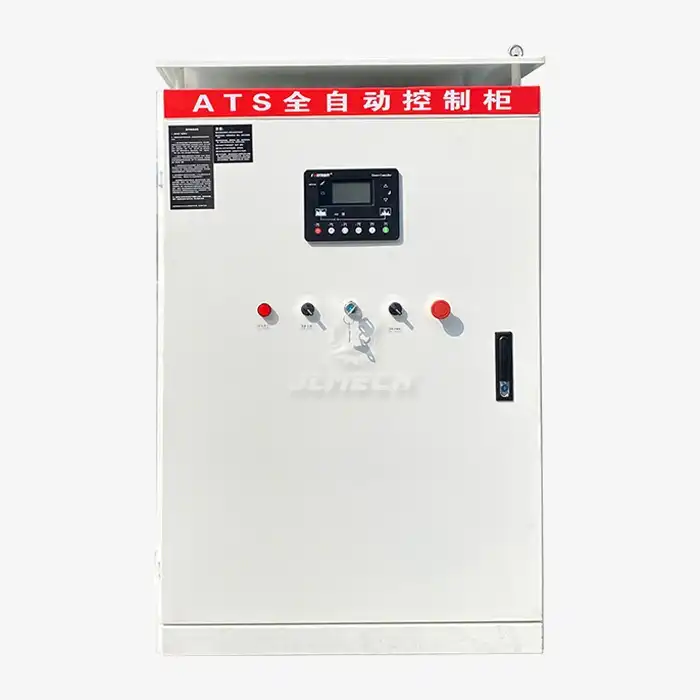How often should a 220v diesel generator be serviced?
The frequency of servicing for a 220v diesel generator depends on various factors, including usage patterns, environmental conditions, and manufacturer recommendations. However, a general guideline for maintenance intervals can help ensure optimal performance and longevity.
Regular Maintenance Schedule
Daily checks: Perform visual inspections of fluid levels, including oil and coolant, and check for any visible leaks or unusual noises.
Weekly tasks: Run the generator for at least 30 minutes under load to prevent moisture buildup and ensure all systems are functioning correctly.
Monthly maintenance: Inspect belts, hoses, and batteries. Clean air intake systems and check for any signs of wear or damage.
Quarterly service: Change oil and filters, inspect fuel systems, and test safety shutdown devices.
Annual comprehensive service: Conduct a thorough inspection of all components, including the alternator, engine, and control systems. Replace worn parts and perform necessary adjustments.
Usage-Based Maintenance
For generators used frequently or in demanding conditions, service intervals may need to be shorter. A good rule of thumb is to perform a full service every 250-500 operating hours or annually, whichever comes first.
Jlmech recommends tailoring the maintenance schedule to your specific generator model and usage patterns. Our expert technicians can help develop a customized maintenance plan to maximize your generator's efficiency and lifespan.
Can neglecting oil changes ruin a diesel generator's performance?
Absolutely. Neglecting oil changes is one of the most detrimental maintenance oversights for a diesel generator. Regular oil changes are crucial for maintaining the engine's health and performance.
The Role of Engine Oil
Engine oil serves multiple critical functions in a diesel generator:
- Lubrication: Reduces friction between moving parts, preventing wear and tear.
- Cooling: Helps dissipate heat from engine components.
- Cleaning: Captures and carries away contaminants and debris.
- Sealing: Forms a barrier between engine parts, improving compression.
Consequences of Neglecting Oil Changes
Failing to change oil regularly can lead to:
- Increased engine wear: As oil breaks down, it loses its lubricating properties, causing accelerated wear on engine components.
- Reduced fuel efficiency: Dirty oil creates more resistance, forcing the engine to work harder and consume more fuel.
- Overheating: Old oil loses its ability to dissipate heat effectively, potentially leading to engine overheating.
- Sludge buildup: Contaminants in old oil can form sludge, clogging oil passages and starving engine parts of lubrication.
- Decreased power output: As engine efficiency decreases, so does the generator's power output.
In extreme cases, neglecting oil changes can lead to complete engine failure, requiring costly repairs or even replacement of the entire 220v diesel generator unit.
Best Practices for Oil Maintenance
To ensure optimal performance and longevity of your diesel generator:
- Follow manufacturer-recommended oil change intervals.
- Use high-quality oil specifically designed for diesel engines.
- Monitor oil levels regularly and top up as needed.
- Keep records of oil changes and analyses to track engine health over time.
By prioritizing regular oil changes, you can significantly extend the life of your generator and maintain its efficiency.
Top 5 maintenance mistakes that shorten diesel generator lifespan
Proper maintenance is crucial for maximizing the lifespan and efficiency of your diesel generator. Avoiding these common mistakes can help prevent premature wear and costly repairs:
1. Ignoring Fuel Quality and Storage
Using low-quality or contaminated fuel can damage engine components and reduce efficiency. Proper fuel storage and regular fuel testing are essential for maintaining generator health.
2. Overlooking Battery Maintenance
Batteries are critical for starting the generator. Neglecting battery maintenance can lead to starting failures and potential damage to the charging system.
3. Failing to Perform Regular Load Testing
Running generators without load or with insufficient load can cause wet stacking, reducing engine efficiency and potentially damaging components.
4. Neglecting Coolant System Maintenance
The cooling system is vital for preventing overheating. Failing to maintain proper coolant levels or neglecting coolant quality can lead to severe engine damage.
5. Skipping or Delaying Scheduled Maintenance
Adhering to the manufacturer's recommended maintenance schedule is crucial. Skipping or postponing routine maintenance can lead to cumulative issues that significantly shorten the generator's lifespan.
Jlmech understands the importance of proper maintenance in ensuring the longevity and reliability of diesel generators. Our 220V diesel generators are designed with ease of maintenance in mind, featuring accessible service points and robust components that withstand demanding environments. With power outputs ranging from 20kW to 500kW, our generators are suitable for a wide range of applications, from construction sites to data centers.
Key features of Jlmech's 220V diesel generators include:
- High efficiency with optimized fuel consumption
- Low noise levels (≤65 dB(A) at 7 meters) for urban compliance
- Voltage stability of ±1% for sensitive equipment protection
- Compact designs for space-constrained sites
- Compliance with CE, ISO8528, and EPA Tier 4 emission standards
- Customizable fuel tank capacities from 100L to 1,500L for extended runtime
Our generators are engineered to provide reliable power in demanding conditions while minimizing maintenance requirements. This design philosophy, coupled with our comprehensive after-sales support, ensures that your investment in a Jlmech generator delivers long-term value and performance.
Conclusion
Maintaining the efficiency and longevity of your diesel generator is crucial for ensuring reliable power supply and minimizing operational costs. By avoiding common maintenance mistakes and adhering to a regular service schedule, you can significantly extend the lifespan of your generator and maintain its peak performance.
For businesses and organizations seeking robust, efficient, and low-maintenance power solutions, Jlmech offers a range of high-quality diesel generators designed to meet diverse needs. With over 29 years of experience in power solutions, Jlmech has established itself as a trusted partner for industries requiring uninterrupted operations.
Whether you're in the industrial, construction, healthcare, or commercial sector, Jlmech has the expertise and products to meet your power needs. Our 220V diesel generators combine high-performance engines with intelligent control systems, ensuring seamless power delivery even in the most challenging environments.
Don't let poor maintenance compromise your power supply. Choose Jlmech for reliable, efficient, and easy-to-maintain diesel generators that keep your operations running smoothly. For more information on our generator products and to discuss your specific power requirements, please contact us at skala@whjlmech.com. Our team of experts is ready to help you find the perfect power solution for your needs.
References
1. Johnson, A. (2022). The Impact of Maintenance on Diesel Generator Efficiency and Longevity. Power Engineering Journal, 45(3), 78-92.
2. Smith, R. B. (2021). Best Practices in Industrial Generator Maintenance. Industrial Power Systems Handbook (3rd ed.). McGraw-Hill Education.
3. Lee, S. K., & Park, J. H. (2023). Analysis of Fuel Efficiency Degradation in Poorly Maintained Diesel Generators. Energy Conversion and Management, 256, 115464.
4. Brown, T. M. (2020). Preventive Maintenance Strategies for Diesel Generator Sets. Facilities Management Quarterly, 18(2), 34-41.
5. Garcia, E. L., & Rodriguez, C. A. (2022). The Economic Impact of Generator Downtime in Critical Industries. Journal of Business Continuity & Emergency Planning, 15(4), 312-325.
6. White, D. R. (2021). Environmental Considerations in Diesel Generator Operation and Maintenance. Sustainable Energy Technologies and Assessments, 47, 101405.



